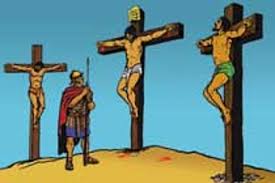John 4:1-3 – Now when Jesus learned that the Pharisees had heard that Jesus was making and baptizing more disciples than John (although Jesus himself did not baptize, but only his disciples),he left Judea and departed again for Galilee.
In chapter one, we saw that the religious leaders (particularly the Pharisees) sent representatives to question John the Baptist about his religious activities. We noted that the Pharisees were very zealous for the Jewish religious rites. They would never allow any changes to Jewish worship except by authority of the Messiah or a prophet.
After interviewing John the Baptist, they determined that he was not Elijah, a prophet or the Messiah. Therefore, his ministry of baptism was unlawful. I am sure they did everything in their power to stop him from baptizing, particularly after he confronted them about their own need for repentance (Matthew 3:1-12).
In chapter three John testified that Jesus was the Messiah, and he encouraged all people (even his own disciples) to follow Jesus. Soon, Jesus had even more followers than John. This would have been a substantial number, because 'all Jerusalem, Judea and the region around the Jordan' turned out to hear John (Matthew 3:4-6). Jesus taught them about the kingdom of heaven and his disciples baptized them in water.
Can you imagine how irritated the Pharisees would be when they discovered the growing ministry of Jesus? In their minds, Jesus would be the second unlawful teacher and baptizer in their midst. Just as in the case of John the Baptist, his ministry drew their own followers away, diminishing their influence and authority among the Jews.
 Don't forget that about this same time, Herod had John the Baptist arrested and put in prison (Matthew 4:12, Mark 1:14, Luke 4:14). This would actually have increased the followers of Jesus even more, as those who formerly followed John now followed Christ.
Don't forget that about this same time, Herod had John the Baptist arrested and put in prison (Matthew 4:12, Mark 1:14, Luke 4:14). This would actually have increased the followers of Jesus even more, as those who formerly followed John now followed Christ.
Worse yet (according to the religious leaders), many Jews believed this man Jesus was the Messiah. But according to their way of thinking, Jesus couldn't possibly be the Messiah they were expecting. Therefore, he was an enemy of Israel who was leading people away from their true teachers (themselves). There can be no doubt that the Pharisees would confront Jesus and seek to take his life in order to protect their own religious authority.
So, when it comes to the attention of Jesus that the Pharisees are aware of the extent of his ministry, he simply leaves Judea and heads for Galilee. By doing so, he avoids a premature confrontation with them.
This is one example of how Jesus was in control of his destiny on earth. He was not going to allow himself to be imprisoned or hindered from spreading the gospel; he needed to be free to complete his mission. At this point, no purpose would be served by provoking the Pharisees, so simply leaving/avoiding confrontation was the right thing to do.
Mary and Joseph followed the same strategy when Jesus was a baby (Matthew 2:13). Jesus advises us to do the same, if we need to (Matthew 10:23).
There is a difference of opinion among scholars about exactly how Jesus became aware of the knowledge of the Pharisees. Some maintain that Holy Spirit revealed it to him. Others believe that a person (possibly one of John's former disciples) found out and simply relayed the information to him.
Either way, the point is that Jesus exercised wisdom in how he dealt with those opposed to the gospel message. There were times for confrontation and times to simply withdraw.
John 4:4 – And he had to pass through Samaria.
What do you recall about Samaria?
Originally, Samaria was the name of a city in ancient Israel. It was founded by the wicked king Omri around 925 BC. Omri made it the capital city of Israel, and he built a temple of Baal there (I Kings 16).
The city was not a particularly peaceful place. It was besieged (several times), destroyed, rebuilt and even renamed. It is important to note that by the time Samaria is mentioned in the New Testament, it no longer refers to a specific city, but to the region or district where the city had been located.
Who did the Samaritans descend from?
Well, Samaria was originally part of the nation of Israel. As we would expect, the people who lived there were Jews. However, in 722 BC when the Assyrians conquered Israel, they really mixed things up. They resettled the best of the Israelites in Assyria. Only the poorest and least desirable people were left in Israel (including Samaria). Then, to avoid the land becoming uninhabitable, the Assyrians brought in foreigners from other conquered lands and forced them to settle in Israel/Samaria. Over the course of time, the Jews who were left intermarried with these foreigners. The people born from the union of the Jews and these foreigners were called Samaritans.
What did the Samaritans believe?
During New Testament times, the Samaritans considered themselves believers in the God of Israel, however, their religion had become corrupted:
The Samaritans only believed in the Pentateuch, rejecting the Psalms, the law and the prophets accepted by the Jews. Also, their version of the Pentateuch was slightly different than the one used by the Jews.
The Samaritans were looking for a 'Taheh' or 'restorer' who was more of a teacher than a Messiah. The Jews, however, were expecting a deliverer/Messiah who was a warrior/king.
The Samaritans believed that Abraham had offered Isaac as a sacrifice on Mount Gerizim. But Genesis 22 says that event occurred on Mount Moriah which is in Jerusalem.
The Samaritans taught that Melchizedek appeared to Abraham on (you guessed it) Mount Gerizim and they also taught that that when the Jews came to the Promised Land, they were to set up an altar of worship at Gerizim. This was false; the altar was to be set up on Mount Ebal (Deuteronomy 27:4-5). As you may recall, mount Gerizim and Mount Ebal were the mountains of cursing and blessing as mentioned in Joshua 8:30-35.
Basically, the Samaritans considered Mount Gerizim to be the most sacred place on earth. However, the Jews considered Jerusalem to be the most sacred place on earth, because that was where the temple or dwelling place of God was located and it was the place where God had chosen to manifest his glory.
 In fact, when the Jews returned from Babylonian captivity and began to build the temple, the Samaritans asked to help. The Jews refused, and the hatred between the two groups never ceased (Ezra 41-5, Nehemiah 4:1-3). For example, the Samaritans ended up building a temple on Mount Gerizim, which the Jews destroyed in 130 BC.
In fact, when the Jews returned from Babylonian captivity and began to build the temple, the Samaritans asked to help. The Jews refused, and the hatred between the two groups never ceased (Ezra 41-5, Nehemiah 4:1-3). For example, the Samaritans ended up building a temple on Mount Gerizim, which the Jews destroyed in 130 BC.
The worst insult a Jew could give someone was to call them a Samaritan. For their part, the Samaritans were just as hostile; even after seeing the power of Jesus they refused him entrance to their district once they found out he was bound for Jerusalem (Luke 9:35).
So we see that these two groups despised one another because each felt the other had polluted/corrupted the Jewish religion. By the time Jesus walked the earth, tensions had existed between the two groups for hundreds of years. (Kind of sheds a new light on the parable of the Good Samaritan, doesn't it?).
Their hatred of each other was so intense, that the Jewish leaders refused to even pass through the district of Samaria. Consequently, a trip from Jerusalem to Judea (which took 3 days if you went through Samaria) would take these men 7 days, because they would skirt Samaria and travel through Peraea.
Now, notice that this verse says Jesus HAD to pass through Samaria. This cannot mean that there was no way around Samaria, because we already know there was – the route through Peraea.
John is referring to something else here –The Father had work for Jesus to do in that region. That is why Jesus had to pass through Samaria, and this is correct explanation of this verse.
Thus we find that the purposes of God over rule the wickedness of man. The Pharisees had driven Jesus to Galilee with their malice, but God used that occasion to bring the first fruits of the Gentiles into the kingdom of heaven!
In the same way, you and I find ourselves in this world but not of it. Some Christians go to great lengths to avoid rubbing shoulders with the world (much like the Pharisees). But let me ask you this – if you never associate with the lost, how can you show them the love of Christ? If you never go to a movie, or a concert, or pass out candy on Halloween, how do you expect to minister to the lost? Let's be honest – they are not flocking to church to hear the message.
Jesus did not hesitate to interact with the women of Samaria. He met her where she was. He treated her with respect and had honest communication with her, yet at the same time he did not approve or condone her false religious beliefs. He spoke the truth to her in love and won her into the kingdom.
 This is an excellent example to us. We need to interact with the sinners around us, meeting them at their spiritual level. We need to treat them with respect, but without approving their sin or their false religious beliefs. We need to be with them, to reveal the truth of the gospel when the time is right.
This is an excellent example to us. We need to interact with the sinners around us, meeting them at their spiritual level. We need to treat them with respect, but without approving their sin or their false religious beliefs. We need to be with them, to reveal the truth of the gospel when the time is right.
Being clothed with the whole armor of God and being in close fellowship with Holy Spirit will allow us to successfully minister to the lost without falling into the same sins they are practicing.
John 4:5 – So he came to a town of Samaria called Sychar, near the field that Jacob had given to his son Joseph.
Passing into the district of Samaria, Jesus comes to the town of Sychar. This town was formerly known as Sichem, or as you may recognize it, Shechem (Genesis 33:18, 12:6). It is located approximately 40 miles north of Jerusalem. It is mentioned several times in the Old Testament.
Shechem was located in the territory of Ephraim (Joshua 21:21). This was the place where Joshua gathered all Israel together before his death, to renew the covenant with God (Joshua 24). After the death of Gideon, Shechem became a seat of Baal worship (Judges 9:46). It was eventually destroyed by Abimelech (Judges 9:45) and rebuilt becoming the residence of King Jeroboam (1 Kings 12:25). It was eventually destroyed and rebuilt again, being named Neapolis or Nablous.
But let's back up a bit, because we want to focus on the history of Shechem during the times of the patriarchs.
Back in the day, Jacob purchased a parcel of land from Hamor, the father of Shechem. It was the place where he erected his first altar to the Lord. Eventually, Jacob gave this parcel of land and an adjoining tract (Genesis 48:22) to his son Joseph:
Genesis 33:18-20 - And Jacob came to Shalem, a city of Shechem, which is in the land of Canaan, when he came from Paddanaram; and pitched his tent before the city. And he bought a parcel of a field, where he had spread his tent, at the hand of the children of Hamor, Shechem's father, for a hundred pieces of money.And he erected there an altar, and called it Elelohe-israel.
Interestingly, this was the place where the children of Israel buried Joseph's bones after they left Egypt (Joshua 24:32). It was a very historical place for the Jews. As you probably already surmised, it is very near to Mount Gerizim.
John 4:6 – Jacob's well was there; so Jesus, wearied as he was from his journey, was sitting beside the well. It was about the sixth hour.
There is no well in the Old Testament identified as Jacob's well. The name probably came as a result of an oral tradition which stated that Jacob had dug it, or because it was near to the land which he gave to Joseph.
As we have already discussed in earlier lessons, the Jews marked time beginning at 6 am. This makes the 'sixth hour' noon, a very hot time of the day. Jesus was probably thirsty, hungry and tired from his extensive walking. He waited at the well as his disciples went into the town to buy some food.
John 4:7-8 – A woman from Samaria came to draw water. Jesus said to her, "Give me a drink." (For his disciples had gone away into the city to buy food.)
Jesus was certainly in need of a drink of water after his exhausting travels. Although the divinity of Jesus is a frequent point in John's writings, he also provides proof that Jesus was dwelling in a body of flesh, and was bound to its weaknesses; he exhibits hunger, thirst and tiredness.
 "Give me a drink" is a perfectly normal request for a traveler to make to a native beside a well. This type of request is practically never refused. But in this case, because Jesus is a man and a Jew, while she is a woman/Samaritan, it is an unusual request.
"Give me a drink" is a perfectly normal request for a traveler to make to a native beside a well. This type of request is practically never refused. But in this case, because Jesus is a man and a Jew, while she is a woman/Samaritan, it is an unusual request.
However, it was not unusual to find women at wells. As we learn from historical records and other portions of scripture, it was often the job of females to draw water for both their families and their flocks (Genesis 24:11, Exodus 2:16).
The Jews used to say that those who wished to find a wife should go to the wells where the young women were to be found in abundance. I guess that could be considered an ancient version of a dating site!
John 4:9 – The Samaritan woman said to him, "How is it that you, a Jew, ask for a drink from me, a woman of Samaria?" (For Jews have no dealings with Samaritans.)
How would the woman have known that Jesus was a Jew? Although it might have been a particular mode of dress, the more likely reason is that Jesus spoke with a Galilean dialect; his speech identified him as Jewish.
This helps to explain the reply of the Samaritan woman. Her response to Jesus is not so much a question as it is a reproach or a jeer, which had its source in the bitter enmity between Jews and Samaritans.
The woman indicates that there were no 'dealings' between the two groups. History indicates that the Jews had no qualms about buying and selling with the Samaritans, but the Sanhedrin forbid them from any familiarity or social interaction with them. In other words, a Jew could not accept a gift from a Samaritan, or borrow anything from them, or marry them or even eat with them.
Thus the woman is surprised when Jesus asked her for a favor; any/every other Jewish man would have endured the worst type of hardship rather than be indebted to a Samaritan for help. Their pride simply wouldn't allow it, even if it was only a drink of water. Besides, a Jew wouldn't help a Samaritan, why should she show kindness to Jesus?
John 4:10 – Jesus answered her, "If you knew the gift of God, and who it is that is saying to you, 'Give me a drink,' you would have asked him, and he would have given you living water."
For his part, Jesus does not argue or debate with the woman, though he certainly could have. Instead, he uses the situation at hand as a starting point to share the good news of the gospel.
He builds up some anticipation in her mind by saying, 'If you knew'. The implication, of course, is that there is something extremely important and valuable at hand, but she is ignorant of what it is.
That extremely important and valuable thing is Jesus himself, the Messiah, the gift of God, the lamb who takes away the sins of the world! She, a heathen sinner, has no idea that she is conversing with the God of the universe who is both willing and able to bestow a priceless blessing upon her – Holy Spirit!
Holy Spirit is the agent of salvation in the lives of mankind. He is often metaphorically referred to as water or living water. Jesus himself refers to him as such later on in the gospel of John:
John 7:38-39 - He that believes on me [Jesus], as the scripture has said, out of his heart shall flow rivers of living water. (But this spoke he of the Spirit, whom they that believe on him should receive: for the Holy Spirit was not yet given; because that Jesus was not yet glorified.)
Our souls are like dry, barren fields that have no hope of producing life. In fact, they are dead. But when the gentle rain of Holy Spirit falls down upon us, we are revived and brought to life and fruitfulness.
At other times the scriptures speak of Holy Spirit as a cleansing water, which washes us from sin/spiritual defilement (Hebrews 10:22).
Holy Spirit is living water because he comes from a living source – Father God (Revelation 22:1).
For her part, the woman views Jesus as a weary traveler, burning with exhaustion and thirsting for rest and refreshment. But in reality, she is the one who is spiritually dry/exhausted and needs to be revived!
John 4:11 – The woman said to him, "Sir, you have nothing to draw water with, and the well is deep. Where do you get that living water?"
This woman exhibits the same spiritual blindness we saw in Nicodemus in the last chapter. It should look familiar to us, because ALL of us were spiritually blind at one time, before Holy Spirit quickened us. The scripture tells us that the natural or earthly man (like the woman or Nicodemus) cannot perceive or understand spiritual things because they are spiritually blind/dead.
1 Corinthians 2:14 -But the natural man receives not the things of the Spirit of God: for they are foolishness unto him: neither can he know them, because they are spiritually discerned.
To us, it seems obvious that Jesus uses earthly water as a starting point to teach this woman about spiritual things. But to her, it was confusing. In her earthly understanding, she cannot imagine how Jesus will give her living water since the well is very deep and he has no bucket to draw with.
But we will see that Jesus patiently works with her until her spiritual eyes/understanding are enlightened and she begins to understand that he is not speaking about earthly water from her ancestor's well.
John 4:12 – "Are you greater than our father Jacob? He gave us the well and drank from it himself, as did his sons and his livestock."
Apparently, this woman thinks that Jesus has access to another physical well of 'living' or fresh spring water. In her mind, Jesus is saying his water is far superior to hers. At that point, she defends the well of Jacob claiming that Jacob, his family and his live stock all drank from this well; whatever Jesus has can't possibly be as good as this. Clearly, her understanding is still in the natural realm.
John 4:13-14 – Jesus said to her, "Everyone who drinks of this water will be thirsty again, but whoever drinks of the water that I will give him will never be thirsty again. The water that I will give him will become in him a spring of water welling up to eternal life."
But Jesus is about to change all that.
He begins by explaining to her that Jacob's well could produce nothing more than ordinary water. As good as it might be, it is no different than other water. It will quench your thirst for a moment, but in a few hours your thirst will return. You will soon have as much need and desire for water as you ever had.
 Just as a drink of fresh cold water could satisfy her earthly desire (temporarily), so the gospel of Christ could satisfy all the deep spiritual longings of her heart by introducing her to the living water of Holy Spirit. Holy Spirit, however, never provides temporary satisfaction.
Just as a drink of fresh cold water could satisfy her earthly desire (temporarily), so the gospel of Christ could satisfy all the deep spiritual longings of her heart by introducing her to the living water of Holy Spirit. Holy Spirit, however, never provides temporary satisfaction.
Because the Spirit of God indwells the heart of the believer, he has a constant unfailing spring of grace, mercy, peace, joy, love, etc available to him. This fountain of grace wells up and overflows in the life of a believer at all times – in times of comfort or hardship, hunger or plenty, prosperity or adversity, life or even the valley of the shadow of death. Outside circumstances have no effect upon the grace that supplies and sustains his soul in all situations.
The end result of this grace is that it wells up into eternal life, which we will enjoy forever, in the presence of our Savior. This is the unspeakably wonderful gift that Jesus wants to bestow not only on this woman, but on all mankind!
Let me offer you some encouragement and some relief and strength:
The world can be a really ugly and repulsive place – just ask the Jews. They felt that nothing could be worse than a Samaritan. But Jesus wasn't afraid to interact with the Samaritan woman. Unless he stopped where she was and interacted with her, he could never have given her eternal life.
You and I should definitely have Christian friends, who can support us in a time of need, advise us, sharpen us and journey with us through this life.
But we also need to have friends and associates that are sinners. If you know nothing of the struggles of the world, how can you relate to them? If you never associate with the unsaved or unchurched, how do you expect to win them to Christ?
I encourage you to take a look at your relationships. Make sure some of them are with unbelievers. As we will see in our next post, it is not our job to condone their sin, but it is our job to explain the truth to them in love.









































